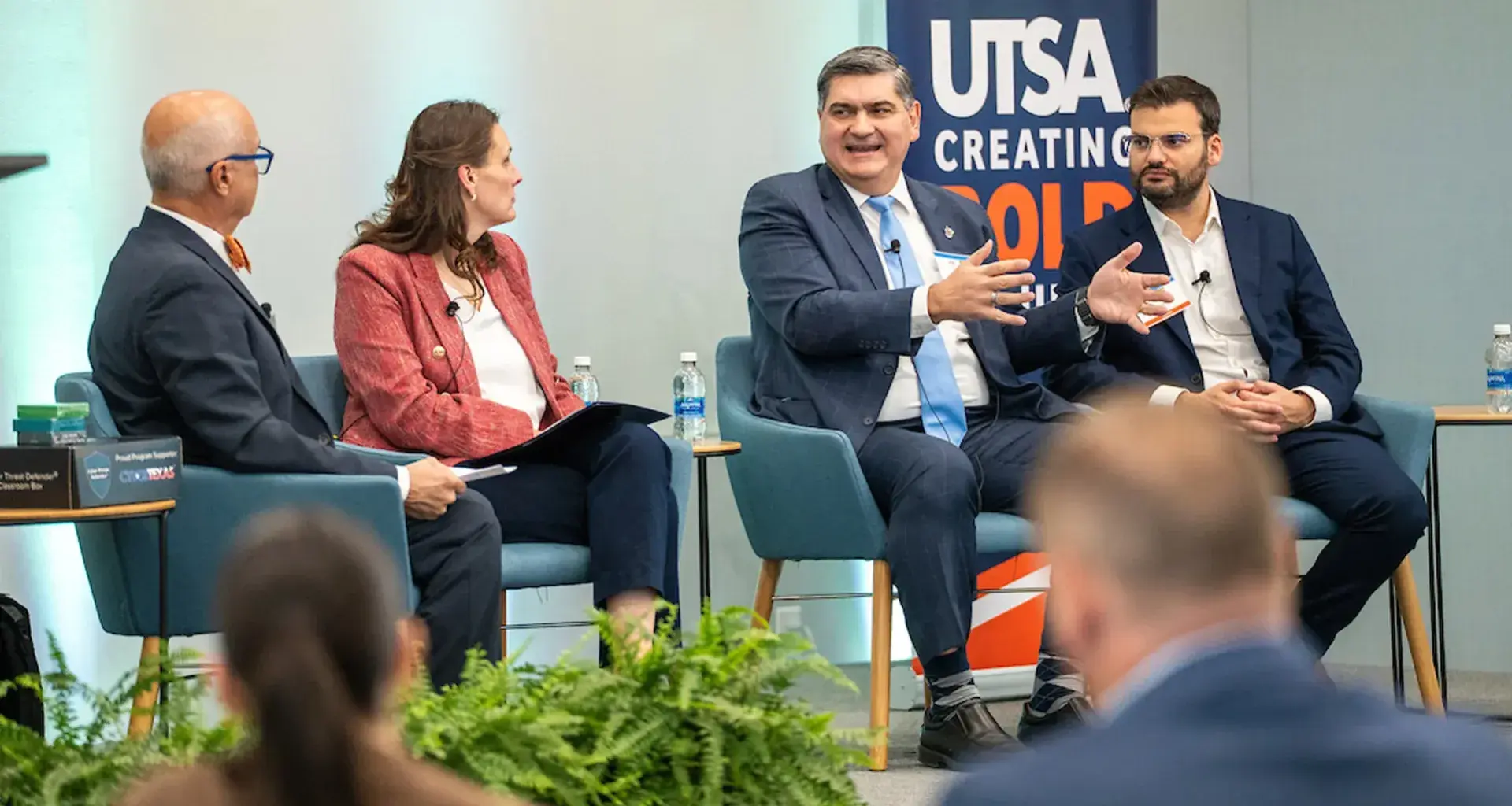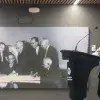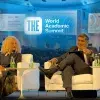David Garza, Executive President of the Tecnológico de Monterrey Education Group, said that universities should prepare their students to adapt to the changes expected in the future.
“Technology is advancing so quickly that when students graduate, they’ll be using technologies that haven’t been invented yet and working in jobs and attempting to solve problems that don’t exist yet,” he said.
“It’s a combination of asking ourselves what some of the jobs that appear in the future will be and what skills will be required. Although we can’t predict everything, we can prepare our students to adapt,” he added.
Garza took part in the event “Competitiveness Conversations Across America: Fortifying the Future” from the Council on Competitiveness and the University of Texas at San Antonio (UTSA).
The education leader was on the panel “Leveling Up Texas Talent: Building an Unmatched Tech Workforce,” together with Dean Gefen, CEO of NukuDo; and Heather Shipley, Ph.D. Provost y VP of Academic Affairs at UTSA.
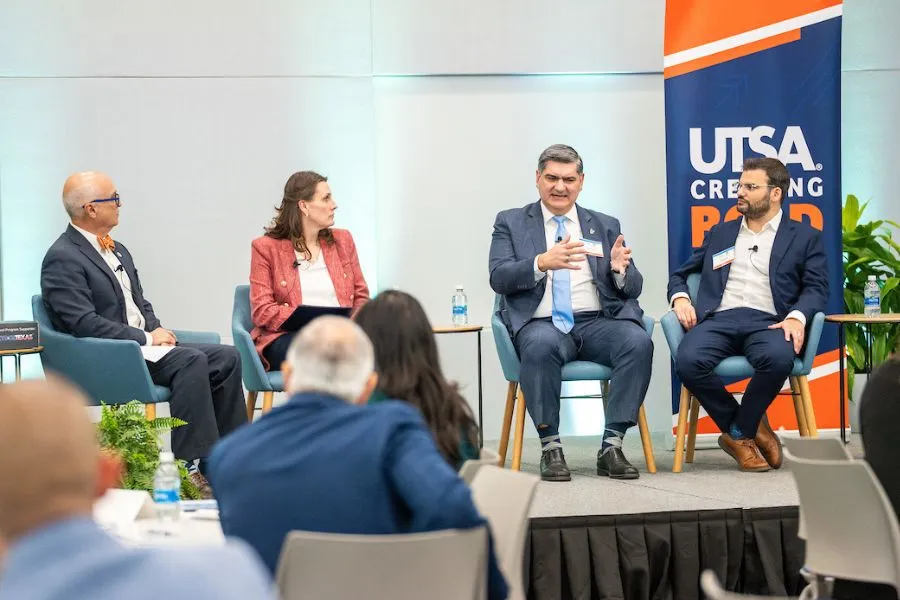
Universities should plan for what’s coming in the workplace
Although he recognized that the outlook for labor, as for everything, is at a point of constant change, Garza stressed how the role of universities as formative bodies is based on visualizing the future.
“Using this analogy of hockey, we say that you shouldn’t skate toward where the puck is, but you should skate toward where it’s going to be,” reflected Garza, alluding to the words of hockey player Wayne Gretsky.
“The challenge that universities have is that we don’t exactly know where (the workplace) will be in the future. So, what we’re attempting to do is think of jobs that, besides being necessary, have an increase in demand,” he explained.
By way of example, he said that some of these professions include scientists who specialize artificial intelligence (AI) data; in the field of cybersecurity, Garza highlighted the need for experts in information protection, among others.
What’s more, the leader also mentioned the importance of considering the skills and abilities that will be required in future, as these are constantly evolving.
“It’s about creating, as we affectionately call them, roadrunners who are prepared for the workplace. That’s our purpose: helping to get students prepared for the workplace (of the future),” concurred Shipley.
The panel was moderated by Joe Sánchez, CEO of CyberTexas Foundation.
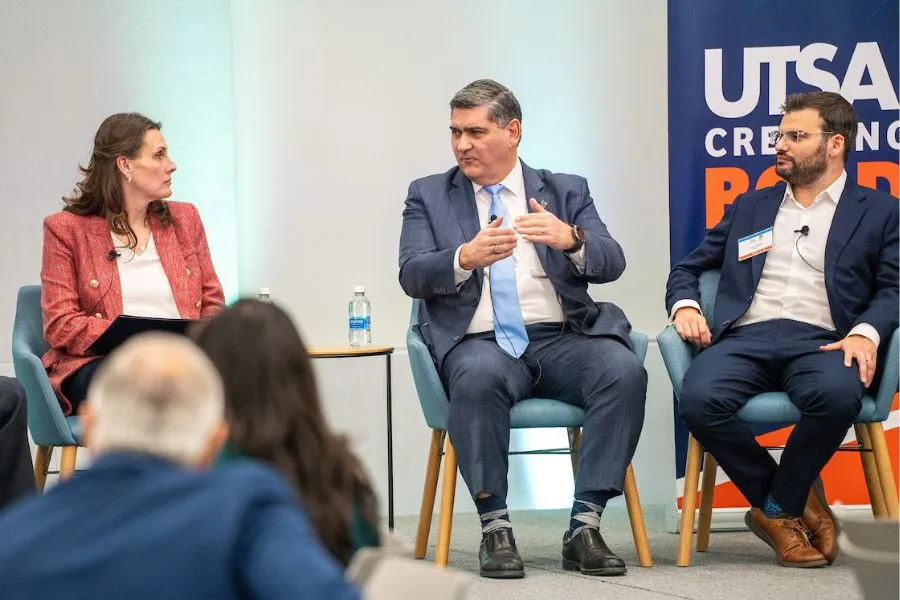
The future demands more “power skills” and “upskilling”
In addition to the previous point, both Garza and Sánchez agreed on the growing need for graduates with power skills, previously known as soft skills.
“At the same time, we have to think about what skills will help graduates the most. That’s where we see that skills such as flexibility and analytical and creative thinking are the main ones,” said Garza.
“It’s not just about books. Besides the educational perspective, there’s also the need to enhance their other talents, which we might overlook too often,” agreed Sánchez.
Additionally, according to Gefen, the arrival of technologies such as artificial intelligence in the workplace has also meant the exit of workers who have been replaced by automation processes.
Due to this trend, the panelist shared that there is a growing need for higher education institutions to provide upskilling alternatives so that graduates can stay competitive in their jobs.
“For the workforce, this would mean that professionals are selected based on their power skills and experience or knowledge of their field, and that we (universities) can prepare them for reinsertion, if necessary,” he said.
Furthermore, Garza underscored how universities have the responsibility of contributing to the aspect of reskilling and upskilling the skills and abilities of students, beyond their university experience.
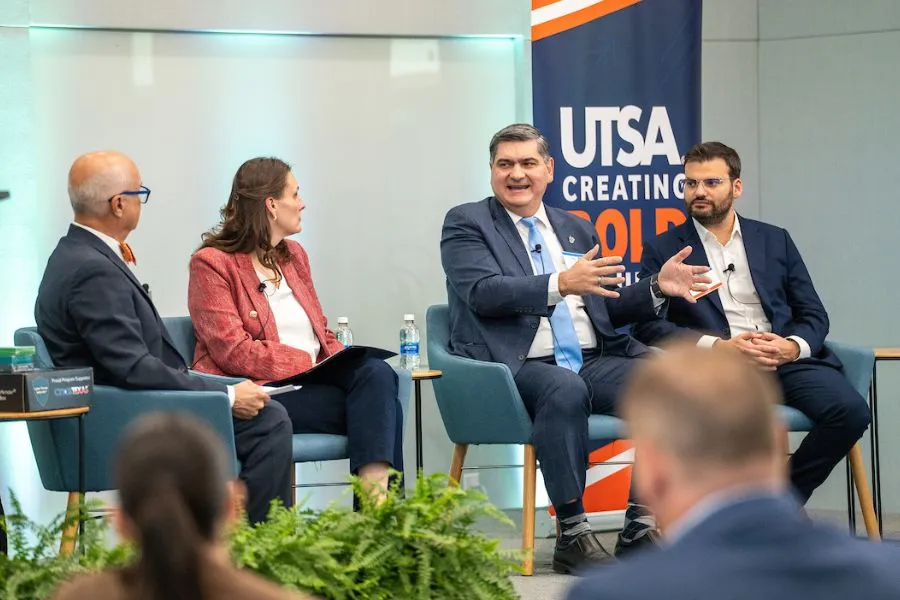
An education model with challenges, innovation, and collaboration
Besides integrating technologies and emphasizing the promotion of long-term institutional visions, Garza and Shipley stressed the importance of continuing to build bridges and joint programs between universities.
Additionally, Garza discussed how the institution’s education model not only promotes collaboration with international stakeholders but also stands out due its innovation.
“In our model, half of our syllabuses are theoretical classes, and the other half consist of students tackling challenges designed by faculty,” explained Garza.
“(These challenges are) mostly interdisciplinary and related to the industry or the community (...) as well as specializations, concentrations, we have programs for data, science, cybersecurity to the max.”
As well as traditional education models, the executive president encouraged educational institutions to consider other types of education models and programs that are not necessarily focused on graduation.
“AI is going to continue to be a great disruptor in education(...) as universities, we have to consider aspects such as personalized learning and attending to the demands of the workplace due to new challenges,” he concluded.
READ ALSO:

